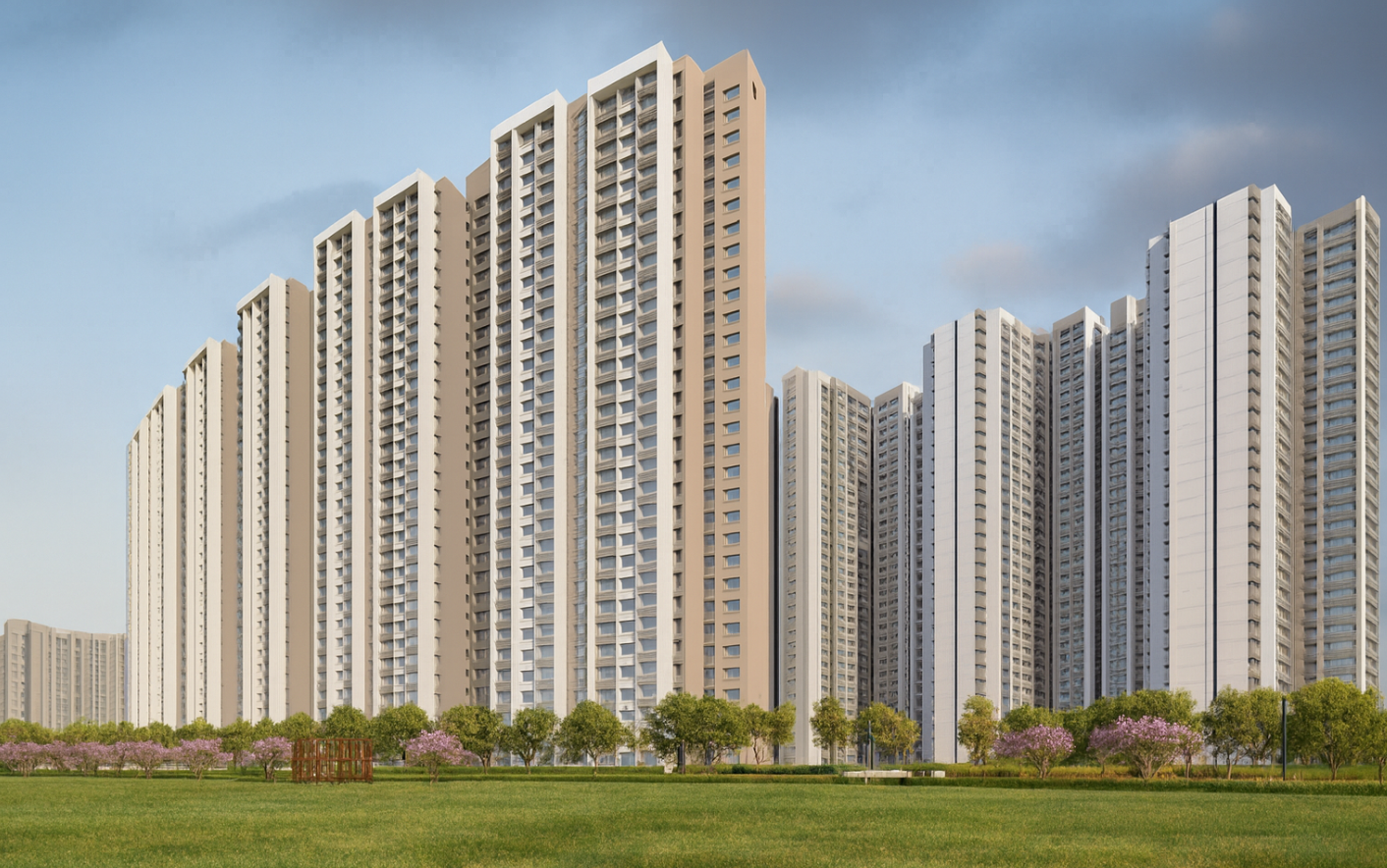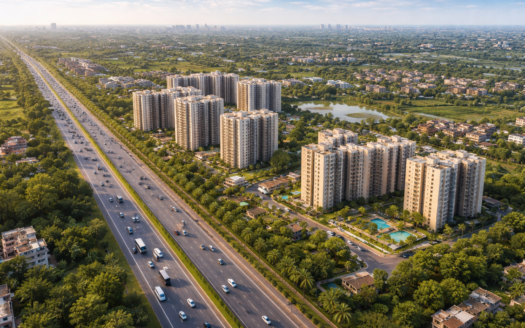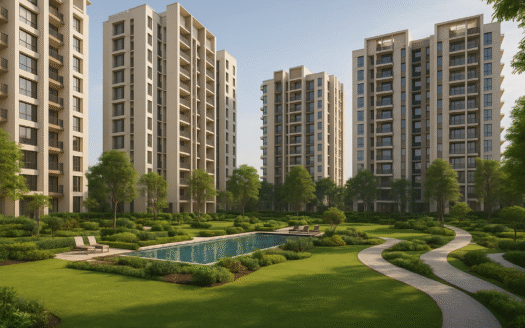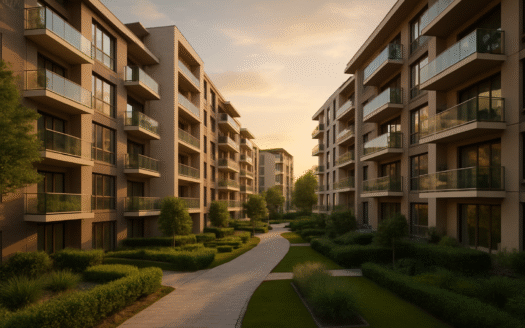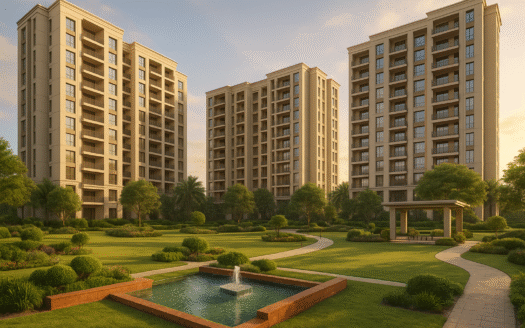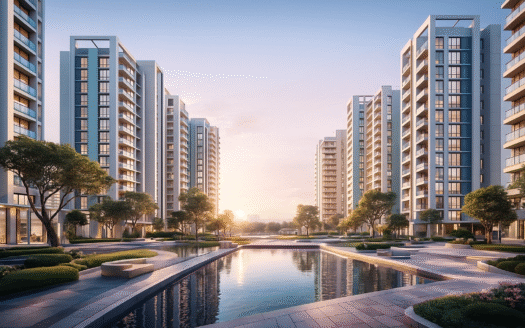Real Estate Price Trends in Pune for 2025
Why Real Estate Price Trends in Pune for 2025 are Important for Buyers & Investors
Pune has matured from a quiet academic hub into one of India’s most resilient real estate markets. The city benefits from a robust IT and manufacturing base, a large young workforce, and improving infrastructure across both the Pune Municipal Corporation and PCMC regions. As we move through 2025, buyers and investors are watching how capital values and rents respond to steady end-user demand, limited ready supply in key corridors, and the continued preference for lifestyle-led townships with better amenities and green space. Understanding how these forces play out at a local, micro-market level is the difference between an average purchase and a genuinely strategic one.
For homebuyers, price trends directly affect budgets, eligibility and the quality of homes within reach. EMI outgo, stamp duty, GST on under-construction units and maintenance costs all add up, so knowing which neighbourhoods are appreciating, which are stable, and where negotiations are still possible helps you buy with confidence. For investors, Pune’s yields are typically stronger than many metros while volatility is lower, provided you choose projects with credible developers, strong tenant catchments and practical apartment sizes.
This guide brings together what matters for 2025 in plain language. You will find a clear view of what is driving values, where the momentum is strongest, and how to plan financing and due diligence. We also map typical price bands across popular micro-markets so you can shortlist quickly. Finally, we share a real-life success story and concise FAQs to address common doubts. Use this as your working playbook, and if you need a personalised shortlist or site visits, the team at Get My Ghar can assist you end-to-end.
Key Takeaways on Real Estate Price Trends in Pune for 2025: What You Will Learn from This Guide
- Regulatory and market drivers
How demand, supply, infrastructure and MahaRERA compliance influence 2025 prices and risk. - Micro-market clarity
Indicative price bands across Hinjewadi, Kharadi, Baner, Wakad, Wagholi, PCMC pockets and luxury cores. - Financing and cost control
Practical ways to structure EMIs, down payments and total ownership cost for today’s rate cycle. - Investment strategy
What to buy for yield versus appreciation, and how to reduce vacancy risk near employment hubs.
What Will Drive Pune’s 2025 Price Trajectory
End-user demand remains the anchor
Pune’s housing market is powered by real end-users, particularly IT and manufacturing professionals. Stable employment and family-friendly neighbourhoods keep absorption healthy in the 2 and 3 BHK mid-segment, typically between 800 and 1,200 sq ft carpet. This sustained end-user base supports prices even when investor sentiment turns cautious.
Supply is selective rather than scarce
Fresh launches are visible in the western growth corridor and the north-eastern belt. However, truly ready-to-move inventory in well-connected areas is finite, and projects with clubhouse-grade amenities or township infrastructure often witness quicker sales velocity. Developers have also become more disciplined with phased launches, which prevents oversupply in a single pocket. The net effect is firm pricing in sought-after micro-markets and rational, negotiable pricing in emerging ones.
Infrastructure, connectivity and liveability
Connectivity upgrades, metro progress and improved arterial roads continue to compress commute times between residential nodes and IT parks. Buyers are placing a premium on walkability to daily conveniences, traffic light access, and school and healthcare proximity. Projects that solve for daily time and stress command stronger prices than those that rely solely on future promises.
Regulation and execution quality
MahaRERA compliance, transparent escrow usage and on-time delivery have become hygiene factors. Grade-A developers with consistent handover records enjoy pricing power, while smaller schemes compete on specifications and payment flexibility. Buyers increasingly evaluate not only a flat’s per sq ft rate but also the true utility of layouts, ventilation, balcony sizes and on-site facility management.
2025 outlook in one line
Prices in established, well-served micro-markets are poised to remain firm with measured appreciation, while value pockets on the periphery offer entry points at lower ticket sizes, provided you are selective about developers, phases and actual connectivity.
Micro-market Snapshot: Where Prices are Firming Up in 2025
Pune is a market of micro-stories. The following table provides indicative capital value ranges and directional potential for 2025. Ranges vary by project quality, stage of construction, view, floor and amenity stack. Use these numbers as a starting point and validate project-wise before negotiating.
| Micro-market | Typical Capital Values 2025 (₹ per sq ft) | Buyer Profile | 12–24 Month Potential |
| Kharadi and around EON IT Park | 9,500 to 14,500 | End-users and investors targeting Grade-A offices and social infra | High |
| Baner and Balewadi | 9,000 to 13,000 | Upgraders seeking a balanced commute to Hinjewadi and the city core | Medium to High |
| Hinjewadi Phase 1 to 3 | 7,000 to 10,000 | First-time buyers, tenants from IT parks, and rental investors | Medium |
| Wakad | 8,500 to 11,500 | Family end-users, strong rental catchment | Medium to High |
| Mahalunge along Hinjawadi Link Road | 8,000 to 11,000 | Township seekers, future infra believers | High |
| Tathawade and Punawale | 7,000 to 9,500 | Value buyers, students and young professionals | Medium |
| Wagholi | 5,500 to 7,500 | Budget end-users who prioritise space over address | Medium |
| Ravet and Nigdi, PCMC | 6,500 to 9,000 | Mid-segment end-users with PCMC preference | Medium |
| Talegaon and Chakan belt | 4,500 to 6,500 | Industrial workforce, long-term investors | Emerging |
| Kalyani Nagar and Koregaon Park | 15,000 to 25,000+ | Luxury and NRI buyers | Stable luxury core |
How to read and use this table
- Project trumps pin code
Within the same neighbourhood, two projects can diverge by 15 to 25 percent due to brand, amenities and execution history. - Connectivity premium
Homes closer to workplace clusters, metro stations or important junctions often command a higher price and lower vacancy. - Ticket size over rate
Many mid-segment buyers focus on the all-inclusive price rather than just the per sq ft rate. Efficient 2 BHK plans around 800 to 900 sq ft carpet typically sell the fastest.
Configuration trends that matter
- 2 BHK remains the liquidity king for both resale and rental.
- 3 BHK is gaining share among upgraders seeking home-office space and better balconies.
- Compact studio and 1 BHK units work near campuses and office catchments, but focus on project with strong on-site management if your goal is steady rent.
Financing, EMIs and Controlling Total Cost in 2025
Smart financing can save lakhs over the loan cycle. While interest rates move with the broader economy, disciplined structuring and a little negotiation on charges meaningfully improve affordability.
Build a pragmatic budget
- Down payment and buffers
Aim for at least a 20 percent down payment and keep a 6 to 9 month EMI buffer for peace of mind. - Total cost view
Add stamp duty and registration, GST on under-construction units, floor rise, parking, club charges and advance maintenance to arrive at an all-in figure. - Bank choice and loan features
Prioritise banks or housing finance companies with quick sanction, transparent reset periods, part-prepayment at zero penalty and reliable service at possession.
Illustrative EMI scenarios
The numbers below are approximate and for guidance only. Actual EMIs vary by lender, interest rate, tenure and scheme.
| All-in Home Cost | Down Payment | Loan Amount | Tenure | Rate (p.a.) | Approx EMI |
| ₹65,00,000 | ₹13,00,000 | ₹52,00,000 | 20 years | 8.6% | ₹45,500 per month |
| ₹90,00,000 | ₹18,00,000 | ₹72,00,000 | 20 years | 8.6% | ₹63,000 per month |
| ₹1,20,00,000 | ₹24,00,000 | ₹96,00,000 | 20 years | 8.6% | ₹84,000 per month |
Cost-saving tactics buyers actually use
- Staggered payments on under-construction properties help match cash flows, but insist on clear stage-wise milestones under MahaRERA and a realistic possession date.
- Pre-EMI versus full EMI needs scrutiny. If your project is close to completion, full EMI can reduce interest outgo over time.
- Part-prepay during bonuses to cut tenure rather than EMI. Even annual top-ups of 5 to 7 percent of the outstanding can knock off years.
- Negotiate quietly on floor rise, PLCs and administrative charges. Many developers have limited room on base price but are flexible on allied costs.
- Choose efficiency over excess. An intelligently planned 2 BHK with better light and balconies often costs less upfront and to maintain, while renting faster.
Rental Yields and the 2025 Investor Playbook
Where yields look attractive
- IT belt anchors
Hinjewadi, Wakad and Kharadi have deep tenant pools. Typical gross yields range around 2.7 to 4.0 percent, depending on ticket size, furniture and proximity to offices. - Student and young professionals demand
Tathawade, Punawale and pockets with campus access see steady absorption of compact units. A co-living-style fitout can edge yields higher returns, though management is hands-on. - Township advantage
Large, well-run townships tend to have faster leasing at slightly better yields because everyday life is simpler for tenants.
What to buy for yield versus appreciation
- Yield focus
Choose efficient 1.5 or 2 BHK layouts between 550 and 850 sq ft carpet with one covered parking. Furnish lightly for rentability, not luxury. - Appreciation focus
Look for early phases of reputable townships near upcoming transit or employment nodes. Prioritise developer track record, clear land title and construction progress before paying a premium.
Risk and vacancy control
- Avoid over-reliance on only one tenant segment. If a micro-market serves both family tenants and single professionals, you have a wider leasing funnel.
- Screen association by-laws on rentals and pets. Restrictions can extend vacancy.
- Price right from day one. Chasing the last ₹2 per sq ft per month can cost you an extra month of vacancy, which is far more expensive.
How Real Estate Price Trends in Pune for 2025 Helped Buyers in Real Life
When 34-year-old Shruti Deshmukh moved from Nagpur to Pune for a role with a product company in Hinjewadi, she rented in Wakad to test commute and neighbourhood fit. Within six months she decided to buy. Her budget was ₹95 lakh all-inclusive, and she wanted a 2 BHK with good balconies, a creche on campus and a gym. Property portals showed a wide range, but site visits revealed large differences in construction quality and the practical feel of layouts.
With guidance from Get My Ghar, Shruti shortlisted three projects in Mahalunge and Balewadi with strong developer credentials and realistic handover timelines. She compared not just per sq ft rates but the all-in cost, view, noise profile and how the club and open spaces would be maintained. A side-by-side EMI analysis showed that an under-construction unit would keep her initial outgo manageable while a near-ready option would reduce possession-time stress.
She chose a 2 BHK in a large township along the Hinjawadi Link Road. The price was competitive within the micro-market band, and the builder agreed to modest savings on floor rise and administrative fees. Today her commute is shorter, on-site amenities free up weekend time and her building’s rental demand provides comfort if she needs to relocate in future. The decision combined price-trend awareness, micro-market selection and disciplined financing, exactly how a 2025 Pune purchase should be planned.
FAQs on Real Estate Price Trends in Pune for 2025
Are Pune property prices expected to rise further in 2025?
Prices in well-connected, amenity-rich micro-markets are expected to remain firm with measured appreciation. Emerging pockets may offer negotiable entry points, but quality projects are unlikely to see deep discounts.
Which Pune areas have the strongest appreciation prospects in 2025?
Kharadi, Baner, Balewadi and the Mahalunge corridor show healthy momentum due to employment hubs and improving connectivity. Hinjewadi and Wakad remain resilient with broad buyer and tenant bases.
Is 2025 a good time for end-users to buy in Pune?
Yes, provided you buy a configuration you can comfortably hold and from a reliable developer. End-user demand supports stability, and smart negotiation on allied charges can improve affordability.
What rental yield can investors expect in Pune in 2025?
Typical gross yields range around 2.7 to 4.0 percent depending on micro-market, ticket size and fitout. Choose efficient 2 BHKs near employment nodes for quicker leasing.
Are under-construction properties safe to purchase in Pune?
Choose MahaRERA-registered projects, review stage-wise construction progress and the developer’s handover record. Stick to clear agreement terms on possession date, delays and compensation.
What configuration sells and rents fastest in Pune?
Well-planned 2 BHKs between 800 and 900 sq ft carpet enjoy the deepest resale and rental demand across Pune’s major corridors.
Pro Tip on Real Estate Price Trends in Pune for 2025
Use a two-list method before you shortlist. First, pick three target micro-markets based on your daily life triangle of office, school and family visits. Second, identify the top three developers within each. Visit at least one project from each developer, compare actual sample flats and common areas, then rank by the quality of layouts, light, balcony usability and on-site facility management. When price bands overlap, choose the project that saves you daily minutes and provides more liveability per rupee rather than only chasing the lowest rate.
Conclusion & Next Steps: How to Act on Real Estate Price Trends in Pune for 2025 Today
Pune’s 2025 housing market rewards buyers who combine price-trend awareness with micro-market selection and disciplined financing. Established corridors should hold firm, while selective emerging pockets offer value for those who prioritise connectivity and developer quality. Build a realistic budget, compare projects within the same catchment and negotiate quietly on allied costs to reduce your all-in spend. If you would like a curated shortlist, site visits, EMI comparisons and documentation support, connect with Get My Ghar. Our experts will help you identify the right project, negotiate effectively and move from research to possession with confidence.

